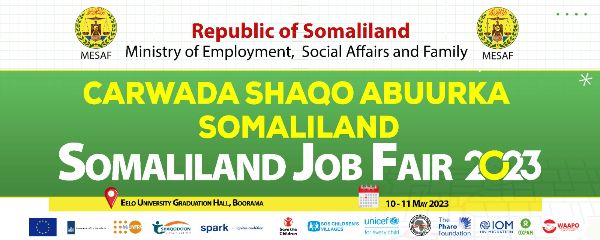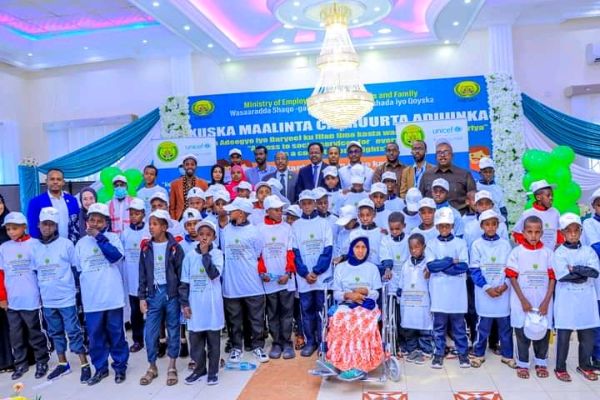
National Job fair
Background
The economic perspectives of young people in many developing countries are extremely poor, and unemployment rates are staggering high. Even when jobs are available, there is often a mismatch between the skills young people can offer and those required by employers. In some of these countries, poverty, lack of economic perspectives and social and political social instability lead to migration and radicalization. This is why addressing youth unemployment ranks high on international and local development priorities, including Somaliland development policy and the 2030 agenda for sustainable development.
Employment remains a key pressing issue in Somaliland. Less than 50% of Somaliland’s population is in the labour force. Lack of skills and work experience is often cited as a major impediment to employment in Somaliland. As much as these constraints affect the entire spectrum of the country’s labour force, the youth particularly bear the greatest brunt. This is true if considered in the context of the country's youthful population that is most in need of skills development initiatives.
Graduates who had opted for self-employment faced challenges related to a lack of appropriate business development knowledge and skills, difficulties in positioning themselves in the market, and a lack of technical skills to compete in a very competitive business environment.
Little information, if any, exists on skills supply and demand in Somaliland. However, studies conducted in the country have pointed at mismatches between skills demanded by industry and those supplied by training institutions. The most affected sectors by this skills mismatch are Tourism, Agriculture, livestock and fishing and value addition in Medium, Small and Micro Enterprises (MSMEs). Such skills mismatch can be attributed to the lack of a Labour Market Information System and limited capacities in education and training institutions. It may also be attributed to a nonintegrated TVET system as well as the limited linkage between graduates and employers.
Thus, Somaliland National Vision 2030 prioritised employment creation under its social and economic development pillars. A major goal of the Somaliland National Vision 2030 is to pursue macroeconomic policies that promote accelerated economic growth and the creation of productive and sustainable employment opportunities for all and especially for youth.
.png)







